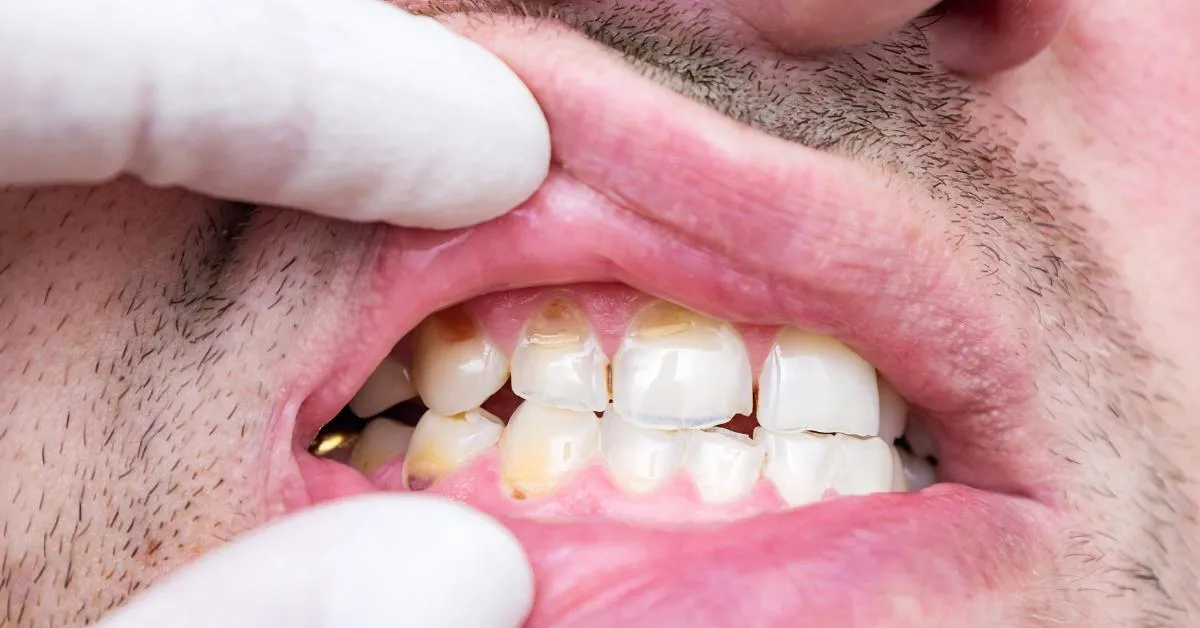

At White Perfect Dental, we understand that dental hygiene is a top priority for our patients. One common dental procedure that often raises questions and concerns is teeth scaling and polishing. Many patients wonder whether this routine dental treatment could potentially harm their enamel, the protective outer layer of their teeth. In this article, we will explore the ins and outs of teeth scaling and polishing, addressing common concerns and shedding light on whether this procedure can damage your enamel.
Teeth scaling and polishing, often referred to simply as dental cleaning, is a standard procedure performed by dental professionals to maintain oral health and hygiene. It involves two main components:
Scaling: During this phase, a dental hygienist or dentist uses specialized instruments to remove tartar (hardened plaque) and calculus from the surfaces of your teeth, especially in hard-to-reach areas and along the gumline. This process effectively eliminates the buildup of harmful bacteria and prevents gum diseases like gingivitis and periodontitis.
Polishing: After scaling, your teeth are polished using a gritty paste and a high-powered toothbrush or rubber cup. This step helps remove surface stains and leaves your teeth feeling smooth and clean.
Teeth scaling and polishing offer several advantages for your oral health:
Scaling and polishing are highly effective at removing external stains from your teeth. Over time, substances like coffee, tea, red wine, and tobacco can discolor your teeth. Scaling and polishing help to eliminate these stains, resulting in a whiter and more aesthetically pleasing smile. This not only enhances your self-confidence but also contributes to a more youthful appearance.
One of the key advantages of this dental procedure is that it encourages good oral hygiene practices. Regular scaling and polishing appointments motivate individuals to maintain a consistent schedule of dental check-ups. These check-ups are vital for maintaining overall dental health, as they allow dentists to monitor your oral condition and provide guidance on proper dental care practices. Consequently, this routine leads to better oral hygiene and long-term dental wellness.
Scaling and polishing contribute to cavity prevention by creating a smooth and clean tooth surface. This minimizes areas where plaque can accumulate and generate acids that harm tooth enamel. A reduced risk of plaque formation means a lower susceptibility to tooth decay. Preventing cavities not only saves you from potential pain and discomfort but also minimizes the need for extensive dental treatments, which can be costly and time-consuming.
Good oral health is closely linked to better overall health. Periodontal diseases, such as gum inflammation and infection, have been associated with systemic health issues. For instance, they have been linked to heart disease, diabetes, and respiratory problems. By reducing the risk of periodontal diseases through scaling and polishing, you can potentially lower your risk of these serious health conditions. This makes regular dental visits not just a cosmetic choice but a crucial component of your overall well-being.
The removal of tartar and calculus during scaling and polishing can prevent or reduce tooth sensitivity and discomfort caused by the buildup of these substances on the tooth surfaces. This translates into a more comfortable eating and drinking experience. It also decreases the risk of experiencing sharp, shooting pains associated with dental sensitivity.
Routine dental check-ups, including scaling and polishing, are essential for early disease detection. Dental professionals can identify and address oral health issues like cavities, gum disease, and even oral cancer at their initial stages. Early detection greatly improves the chances of successful treatment. Timely intervention not only helps in maintaining dental health but can also potentially save you from more invasive and expensive procedures that might be necessary if problems are left unaddressed.
The frequency of teeth scaling and polishing varies based on an individual’s specific dental requirements. In most cases, it is advisable to undergo this procedure every six months as a standard component of your regular dental examination. For those who have a history of gum disease or a heightened risk of developing plaque, dental professionals may recommend more frequent cleanings to maintain optimal oral health.
Regular scaling and polishing not only enhance the aesthetics of your smile but also contribute to overall dental well-being. Therefore, it is crucial to consult with your dentist to determine the appropriate schedule for your specific needs, ensuring that your teeth and gums remain in the best possible condition.
One common misconception that circulates regarding oral hygiene is the belief that teeth scaling and polishing may potentially harm the enamel. This concern often stems from uncertainty and a lack of understanding about the intricacies of these dental procedures. To alleviate these worries, it’s crucial to elucidate the facts and debunk the myths surrounding this issue.
When administered by a skilled and qualified dental professional, teeth scaling and polishing should not inflict any harm on your enamel. In fact, these procedures are intended to preserve and safeguard your enamel by eliminating detrimental substances like tartar and plaque that can contribute to enamel erosion. The primary objective of scaling is to remove hardened deposits from the tooth’s surface, which, if left unaddressed, can lead to more severe dental problems. Polishing, on the other hand, aims to make the tooth surface smoother, making it more challenging for plaque and bacteria to accumulate, thus enhancing enamel protection.
Some people mistakenly assume that the gritty paste employed in the polishing phase may cause damage to the enamel. While it is true that the paste may feel somewhat abrasive during the procedure, it’s essential to recognize that this abrasive paste is specifically formulated for dental use. It has been carefully engineered to strike a balance between effectively removing surface stains and irregularities while being gentle enough to avoid causing any harm to the enamel. In reality, it’s far less abrasive than other substances that are sometimes misguidedly used for teeth cleaning, such as household abrasives like baking soda or even sharp objects. Dental professionals are trained to use these materials with precision to ensure minimal enamel impact.
Enamel damage is more likely to occur when individuals attempt to remove stains or tartar at home using abrasive materials or techniques. This do-it-yourself approach, often involving the use of abrasive household items like baking soda, or untrained and unsafe methods like scraping teeth with sharp objects, can lead to enamel erosion. This can have detrimental consequences for your oral health, as enamel serves as a protective shield for your teeth. Once it wears down, it can expose the more vulnerable layers beneath, leading to increased sensitivity and a higher risk of cavities.
In summary, it’s important to understand that teeth scaling and polishing, when executed by a dental professional, are safe and beneficial procedures. They contribute to the well-being of your enamel by effectively removing harmful substances, thus maintaining your oral health. The genuine risk of enamel damage arises when individuals undertake unsupervised and potentially harmful techniques, making it crucial to seek professional dental care to ensure your enamel remains intact and healthy.
While the teeth scaling process is generally not painful, some individuals may experience mild discomfort or sensitivity, especially if they have sensitive gums or teeth. The discomfort is typically temporary and subsides shortly after the procedure. If you are concerned about sensitivity, inform your dental professional, and they can take steps to minimize any discomfort.
It is possible to experience temporary sensitivity after teeth scaling and polishing, but this usually subsides within a day or two. If you have persistent sensitivity, consult your dentist, as they may recommend desensitizing toothpaste or other solutions.
While teeth polishing can remove surface stains, it is not a substitute for professional teeth whitening. If you are looking for a significant change in the color of your teeth, discuss teeth whitening options with your dentist.
Yes, children can benefit from teeth scaling and polishing. It helps maintain their oral health and teaches them good dental hygiene habits from an early age. The procedure is safe for children when performed by a qualified dental professional.
After the procedure, maintain good oral hygiene by brushing and flossing regularly. Avoid consuming highly pigmented foods and beverages for a day or two to prevent new stains from forming.
It’s best to wait for about 30 minutes before eating or drinking to allow any residual paste to dissolve fully. Additionally, avoid consuming hot or cold foods immediately after the procedure, as your teeth may be more sensitive.
At White Perfect Dental, we are committed to providing our patients with the highest quality dental care, including teeth scaling and polishing. We hope this article has addressed your concerns about whether teeth scaling and polishing can damage enamel. When performed by a trained dental professional, this routine procedure not only helps maintain your oral health but also protects your enamel from harmful bacteria and plaque buildup.
If you have any further questions or concerns about teeth scaling and polishing or any other dental procedures, do not hesitate to reach out to us. Your oral health is our top priority, and we are here to assist you in achieving and maintaining a bright, healthy smile. Contact White Perfect Dental today to schedule your next dental cleaning and ensure your smile remains radiant and healthy!




Fissure sealant
Dental fillings
Root canal treatment
Tooth extraction
Wisdom tooth removal
Crowns & bridges
Branches & Operating Hours
Contact Information
Make an Appointment


Fissure sealant
Dental fillings
Root canal treatment
Tooth extraction
Wisdom tooth removal
Crowns & bridges
Branches & Operating Hours
Contact Information
Make an Appointment
Copyright © White Perfect Dental Surgery Sdn Bhd (Company No. 201001012274 (1000198-P)).
Website Managed by MYSense. All Rights Reserved.